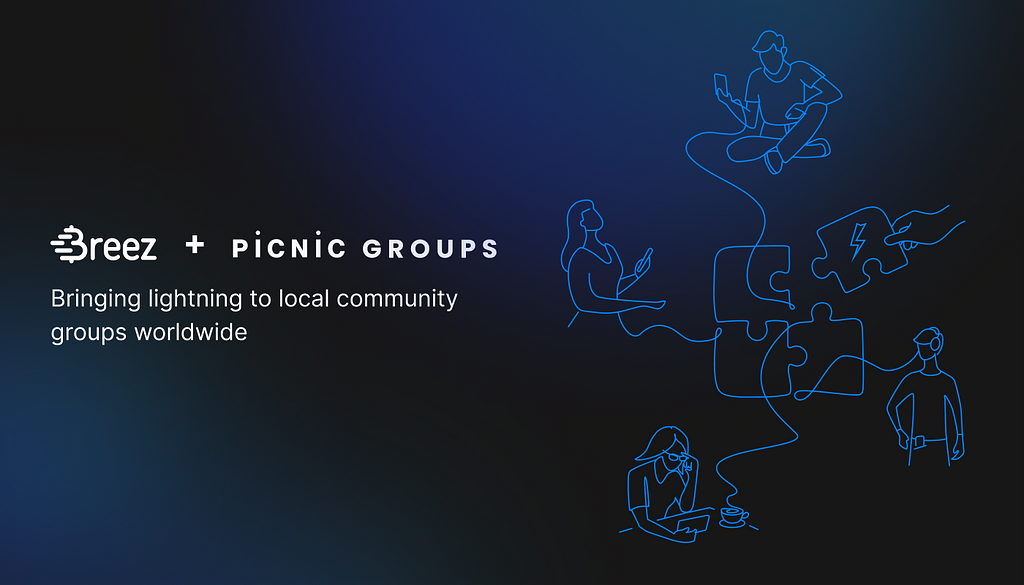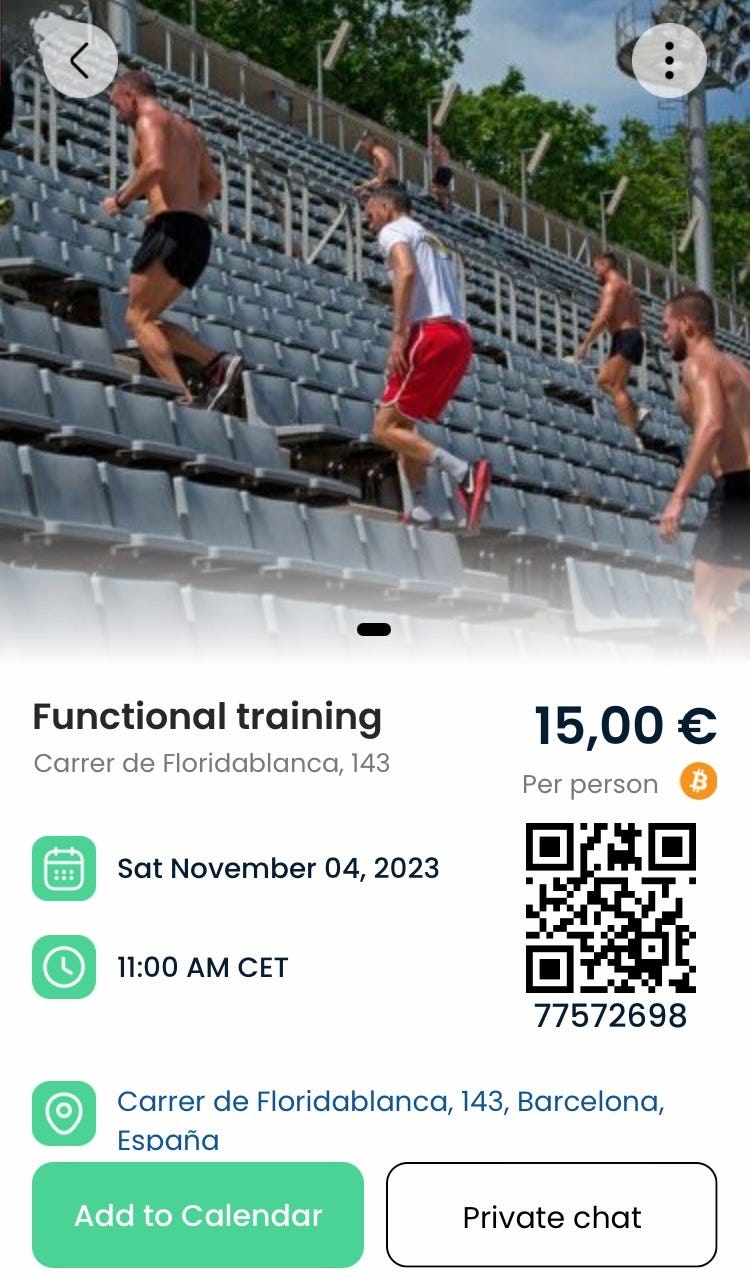Blogs & Articles: Building on Lightning: How Picnic Fosters IRL Connections with the Breez SDK 🔗 25 weeks ago

- Category: Blogs & Articles | Breez Technology - Medium
- Author(s): Roy Sheinfeld
- Published: 1st November 2023 13:43
The world can be a lonely place. It’s easy to get sucked into a screen — or multiple screens. Sure, there’s social media, but it’s usually far more “media” than “social.”
Loneliness has a simple antidote: high-fives and hugs. The big-brained (and big-hearted) idea would be to use technology to facilitate real social interaction instead of using it as a substitute. To use an app as a means to touch grass. To see clicks as a means of finding like-minded people nearby. The best tech collapses barriers and makes us feel less alone.
Robert and Erik have learned this first hand. Robert is a digital nomad who founded Picnic Groups to foster local communities of like-minded enthusiasts. It helps strangers to become friends by connecting them and helping them to organize common activities. Erik is the director of Velas Commerce who’s helping Robert bring Lightning to Picnic.
Picnic needs Lightning because its peer-to-peer structure mirrors the peer-to-peer interaction that the app is designed to promote. Lightning also makes expanding into new markets much easier, and the Breez SDK makes it easy to plug Lightning payments into a pre-existing app with minimal friction for developers and users.
Picnic Hacks Distance
In some locales, the same families have been living, working, and playing together in close proximity for as long as anyone can remember. In many (post-)modern places, though, residents might come from different places and different backgrounds. There might be a dozen people in my neighborhood who all love 90s indie rock as much as I do, but we would never know. Social distance no longer automatically matches geographical distance.
The beauty of Picnic is that it helps people with common interests to meet up and do things together: hiking, bowling, yoga, surfing, drum circles, whatever. Picnic starts, like almost every interaction, with chat groups. Anyone can start a public chat group based on an interest and a location. Everybody is welcome to chime in, ask questions, make suggestions, plan events, and welcome others. The app includes a map so that people can find activities and companions nearby. The point is to get together and do fun stuff. Like using bitcoin, the best way to experience the magic is simply to try it (on iOS or Android).
Payments enter the picture because many of the interactions will naturally require some kind of transaction. Yoga instructors, tour guides, and surfing coaches probably want to get paid for organizing an event and providing the service (though many groups — like knitting circles and pub quiz teams — can organize free events because the activity is just nicer together).
Collecting payments over a separate app is possible, but that would introduce friction, which is exactly what Picnic is trying to eliminate. So Picnic lets users pay through the app, and there’s a subscription model that provides some additional benefits for event organizers. To process payments, they’ve opted for two plug-and-play solutions: PayPal for fiat payments and the Breez SDK for Lightning. Organizing, navigating, and paying all in one app: social contact with minimal friction.
Lightning Hacks Payments; the Breez SDK Hacks Lightning
I’m not sure about the details of implementing PayPal because that’s not my world. But Picnic uses an interesting Lightning setup.
Picnic uses two different kinds of node. First, they use Voltage for an internal cloud node, which processes incoming and outgoing payments.
But there’s also the question of how to onboard all their users, who will need their own Lightning nodes to accept and make payments in the app. Helping each user to set up a local node on every phone and managing the liquidity to process all their payments through their own LSP would be a headache. Believe me. So that’s where the Breez SDK comes in. It brings Lightning payments to the Picnic app while sparing developers the complexities of implementation, providing a seamless experience to its end users.
Users have to fund the app with bitcoin to make payments in the app of course, but once that’s done, they can use their node for an indefinite number of payments over Picnic. In effect, Picnic is facilitating its own branch of the Lightning Network, with users paying each other as peers, neighbors, friends. Designing this sub-branch from scratch would be nearly impossible, and implementing it would be very complex. But with the Breez SDK, it happens almost automatically. Erik said that the Breez SDK has taken nearly all the configuration and management work off his plate.
Lightning is helping Picnic in several ways. Most of the events organized over the app appeal to “alternative” interests (is yoga still “alternative”?), and alternative people tend to be open to alternative payments. Giving people what they want is always good business.
And if you think about it, Picnic users are destined to erect a circular economy, which is the goal Lightning and bitcoin were invented to achieve. The surfing instructor takes a yoga class; the yoga instructor takes a harbor tour; the tour guide recommends the surfing class to their customers. Lightning supports Picnic’s circular economy with low fees, disintermediated transactions, and neighbors interacting on equal footing as peers. Lightning is the monetary realization of Picnic’s vision.
With the Breez SDK, Lightning can also help expand Picnic’s reach. This app would be a godsend for tourists — people who are new to a place, are looking for fun stuff to do, but don’t know where to go or who to do it with. They might also be coming from different places with different currencies and different payment rails. But bitcoin is the currency for everyone from anywhere, and Lightning channels are universal payment rails for it. So by removing the friction from bitcoin, the Breez SDK can help people anywhere and from anywhere pay each other with a common monetary infrastructure.
And Picnic is also good for Lightning. It embodies the heart and community that we all cherish in each other. It promotes the circular economy we’re all working towards. Picnic is a beautiful proof of the concept that bitcoin is a force for good in the world; that bitcoiners are diverse — surfers, yoga practitioners, knitters, coders, and dancers — but we’re also conscious of living in the same, borderless world together. Just like a couple of Picnic users after an event, the Breez SDK and Picnic are giving each other a high-five and a hug, and we’re all better for it.
The Breez SDK Is the Cheat Code for Lightning
If you have an app that could use Lightning payments and you want to become a design partner for quick, easy, and safe implementation, let us know. Every app developer out there is just a friend we haven’t met.
Building on Lightning: How Picnic Fosters IRL Connections with the Breez SDK was originally published in Breez Technology on Medium, where people are continuing the conversation by highlighting and responding to this story.








